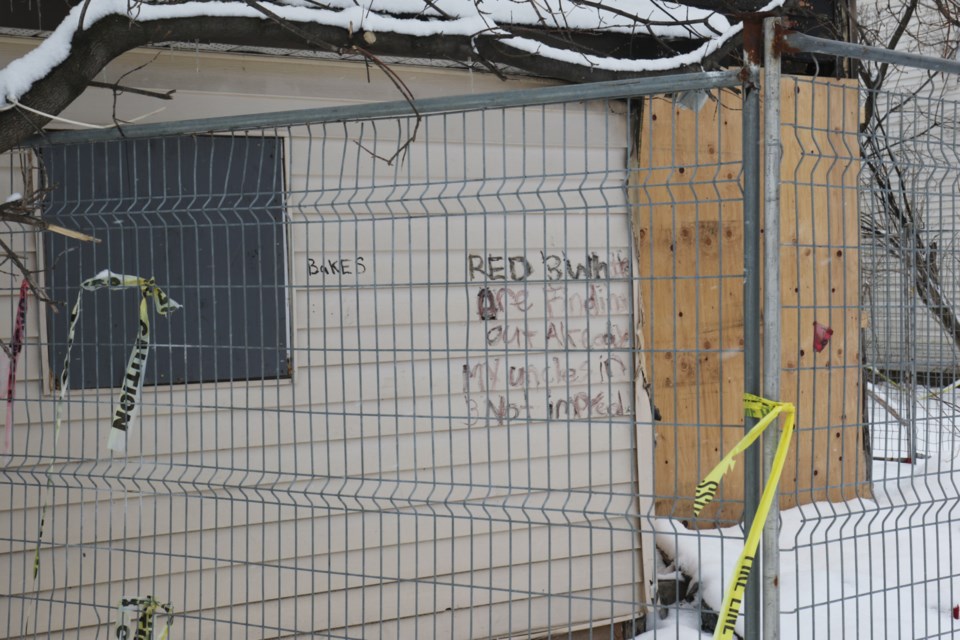City council unanimously voted this week to introduce a four per cent tax on owners of vacant homes.
Enforcement will start on Jan. 1, 2025, based on vacant data for 2024.
City staff had recommended a three per cent tax, but the tax was increased on recommendations from Mayor Matthew Shoemaker and Ward 4 Couns. Marchy Bruni and Stephan Kinach.
"I think that most of these property owners have been long vacant and long delinquent homeowners," said the mayor.
The Province of Ontario granted authority for all single and upper-tier municipalities to impose taxes on vacant homes in March 2024.
A vacant home is defined as “any residential unit unoccupied for more than 183 days in a taxation year” that doesn't meet the exemption criteria.
Here are the exemptions to the tax approved at Monday's city council meeting:
- principal residence: This means a person’s legal/official place of residence where they reside and conduct their daily affairs, receive mail and pay bills. This includes either the owner of the property, a family member of the owner, or an individual who has entered into a formal lease or rental agreement for a term of at least 183 days. This exemption applies regardless of how many days the principal resident is physically present at the property
- death of a registered owner: A unit is exempt for up to 24 months after the owner’s death, provided it was occupied at the time of death. This applies to the legal estate or heir without any extension to the 24-month exemption period
- registered owner in care: A unit vacant for up to 24 months after the registered owner is admitted to care (hospitalization or long-term care)
- property transferred in the reference year: A unit that has changed ownership via an arm's-length transaction is exempt for the taxation year of the transaction
- undergoing major renovations within a reasonable timeframe: A unit that is undergoing major redevelopment or renovations that, in the judgment of the municipality, are being pursued within a reasonable timeframe. All necessary permits must have been issued by the city for the repairs and renovations
- non-profit housing: Units owned/managed by not-for-profit organizations or are considered social housing. The rationale for this exemption is that the city is aware of a non- profit organization transitioning away from providing group home accommodations. Many of these group homes fall under the residential tax class and may remain vacant for over six months while waiting for the necessary provincial government approvals to be put on the market
- subject to court order prohibiting occupancy and the owner is making efforts to remedy: Units with a court order preventing occupancy during the vacancy reference year, unless the order is conditional on an action of the owner or the state and condition of the property, and the owner has not made reasonable efforts to remedy the circumstances that led to the order
- seasonal properties: Properties classified as seasonal (MPAC codes 363, 364, 385, 391, 392, and 395)
- vacant new inventory: A unit that was continuously listed for sale or lease and not sold or leased in their first year on the tax roll
- multi-residential properties: A property that falls under the multi-residential tax class (greater than six units). The Municipal Act, 2001 states that municipal vacant home taxes may apply to residential units that are classified in the residential property class under the Assessment Act and are taxable under that act for municipal purposes. Properties with more than 6 units are classified in the multi-residential property class and are not eligible for the vacant home tax as per legislation
- short-term rentals in good standing: A unit used exclusively as a short-term rental if cumulatively occupied for a minimum of 100 days during the taxation year, and there exists a license for the short-term rental that is in good standing
- uninhabitable: In the judgment of the chief building official, the unit is otherwise uninhabitable for reasons beyond the owner’s control
